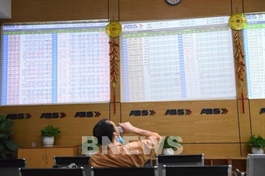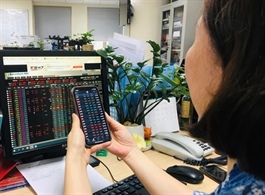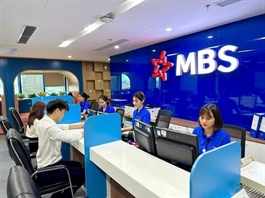Meaningful progress made to clear market upgrade path
Meaningful progress made to clear market upgrade path
Robust reforms, upgraded trading infrastructure, and easing investor concerns in Vietnam are paving the way for a long-awaited upgrade to emerging market status.

The new KRX system has been operational for a few months, and creases are being smoothed out, photo Le Toan |
Since early 2025, the Ministry of Finance, the State Securities Commission, and other relevant authorities have intensified efforts to dismantle technical barriers to Vietnam’s stock market upgrade, with particular focus on the long-standing non-prefunding requirement.
Based on current developments, analysts believe that Vietnam could be considered for an upgrade by FTSE Russell in its September review, assuming remaining technical issues are resolved. MSCI is also expected to consider placing Vietnam on its watch list in June, though its evaluation process may take longer due to stricter requirements related to foreign ownership.
Pham Luu Hung, chief economist and head of SSI Research, highlighted that the upgrade effort is underpinned by broader economic reforms introduced by the Party and government. He pointed to Resolution No.68-NQ/TW 2025 as a key milestone.
“The shift in development thinking from management to service will serve as a core foundation for advancing the private sector in general, and the securities market in particular,” he told VIR.
In this context, the government is actively implementing the Securities Market Development Strategy through to 2030, with a comprehensive approach that includes the simultaneous development of all market components. Key priorities include nurturing institutional and intermediary investors, applying modern technology across the market, and strengthening regulatory oversight and transparency.
According to Hung, the review and refinement of regulations on corporate bonds, both for domestic issuance and foreign offerings, are central to the ongoing reform agenda. These efforts aim to deepen the bond market and create more stable channels for capital mobilisation, thereby supporting long-term private sector growth.
Additionally, legal frameworks for asset securitisation are being studied to diversify funding sources and introduce innovative products.
As a result, a growing number of strong private enterprises are expected to participate in the capital market. Hung noted this will not only expand the market’s scale and depth but also drive revenue and profit growth among listed firms. At the same time, it opens the door for more tailored financial solutions that support businesses throughout their development cycles.
Nguyen Duc Hoan, CEO of ACB Securities, echoed these sentiments, adding that an upgrade would enhance market liquidity and bolster Vietnam’s position in global capital markets. However, he also stressed that corporate governance and transparency must continue improving.
“Listed firms should go beyond minimum disclosure requirements and proactively provide accurate, timely, and consistent information to ensure equal access for all investors,” he told VIR.
Another significant milestone in Vietnam’s journey came with the official launch of the Korea Exchange (KRX) technology platform in May. This advanced system is expected to dramatically improve trading, settlement, supervision, and risk management operations.
Crucially, it lays the groundwork for introducing international-standard features such as T+0 settlement, short selling, derivatives, and central counterparty clearing, all key criteria in upgrade assessments.
Nguyen The Minh, head of Research and Development for Retail Clients at Yuanta Securities Vietnam, praised deployment of the KRX system and removal of the prefunding requirement as “meaningful”.
“However, unresolved challenges, such as administrative barriers for foreign investors and restrictions on ownership, still need careful attention to ensure Vietnam’s upgrade aspirations are realised,” Minh said.
Complementing these efforts, the State Bank of Vietnam issued a circular in April to facilitate smoother market access for foreign investors. This regulation eliminates the requirement for consular legalisation of documents, and stipulates that each foreign investor may open only one VND account per licensed bank, simplifying administrative procedures and aligning Vietnam more closely with global standards.
In parallel, the Ministry of Finance is implementing initiatives to improve the investment environment. These include streamlining post-listing processes, expanding financial instruments such as derivatives and exchange-traded funds, and launching new investment indices, moves aimed at diversifying investor choices and enhancing market depth.
- 09:44 17/06/2025



























